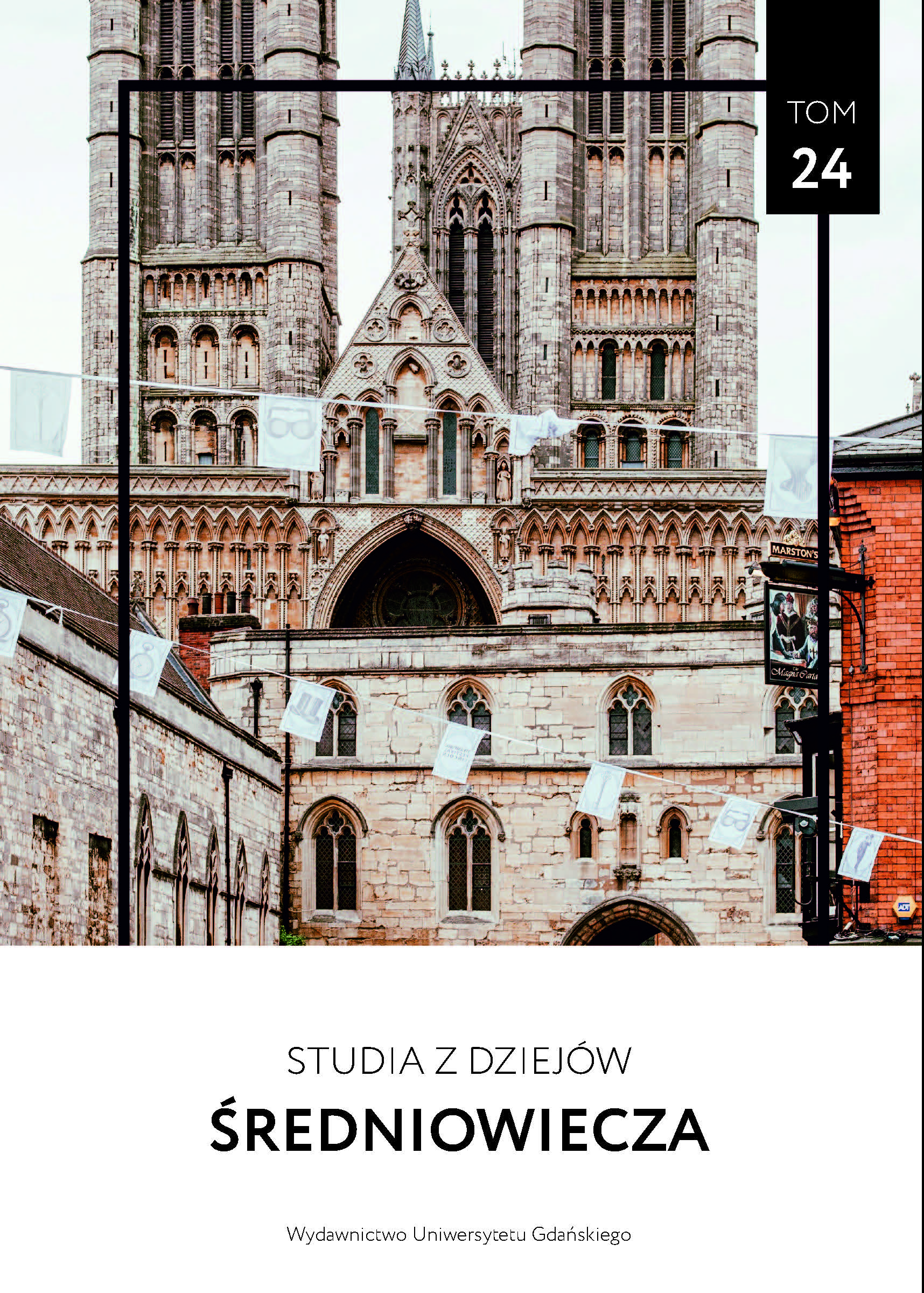Osoby duchowne w otoczeniu i czynnościach prawnych księcia gdańskiego Warcisława II
Clergy in the State of Warcisław II, Duke of Gdańsk (1266–1269/1270)
Author(s): Mateusz SzubaSubject(s): History, Middle Ages, 13th to 14th Centuries
Published by: Wydawnictwo Uniwersytetu Jagiellońskiego
Keywords: The history of the Church; Sobiesławice dynasty; East Pomerania; canon groups; Pomeranian clergy
Summary/Abstract: The above paper deals with the clergy in the state of Warcisław II, Duke of Gdańsk and East‑Pomerania between 1266 and 1269/70. The careers of representatives of this class are reconstructed by collecting and verifying source information and the extensive discussions of earlier historians. Four clergymen from Gdańsk, 2 from Słupsk, and Michael priest of “Saulyn” have been authenticated, but it is not certain that the last two places actually belonged to Warcisław’s state. The main conclusion of this research is that during the reign of Warcisław II, clergy were of political significance. They served in administration and in an early chancellery service, as in the case of a group of clergy in the fortified church in Gdańsk. It is likely that one of local priests‑ Wacław/Unisław – was also probably related to an influential gentry family This was also probably the case with Luder, priest of St. Catharine’s Church in the city of Gdańsk. He was probably an agent mediating between the Duke and the middle class. Warcisław II had good relations with the middle class and its political influence was growing during his reign. In Słupsk, too, the clergy participated in changing political affiliations, but that is visible only later. Clergymen also supported other dukes; this was visible and of importance during the East‑Pomeranian civil war (1269–1271) between Warcisław II and Msciwoj II, which ended in the former’s exile. One historian believes that the priest Michael served in Salino in East‑Pomerania. Perhaps his presence in a privilege from 1268 had a political context – by that act Warcisław II could show his claims to Białogarda’s land. This had been mortgaged to the Teutonic Order by Duke Racibor. Otherwise, according to the opinion of Klemens Bruski, Michael could have served in another place – Słona near Kościerzyna.
Journal: Studia z Dziejów Średniowiecza
- Issue Year: 2020
- Issue No: 24
- Page Range: 229-264
- Page Count: 36
- Language: Polish

